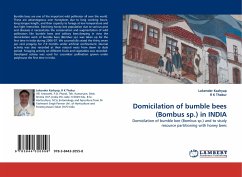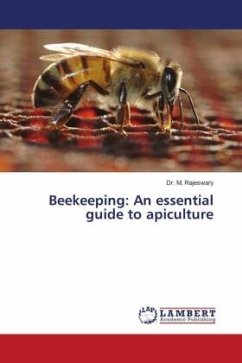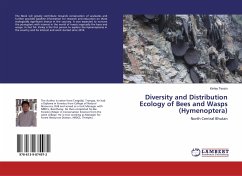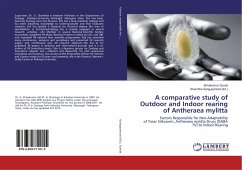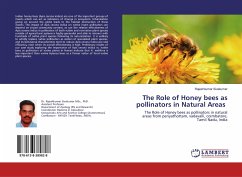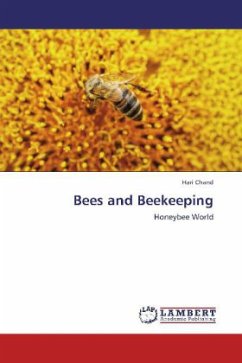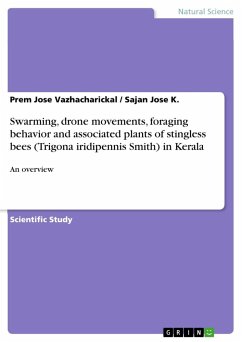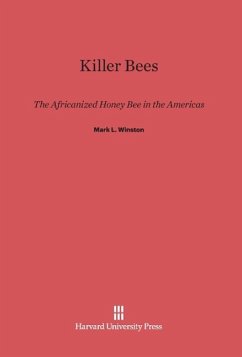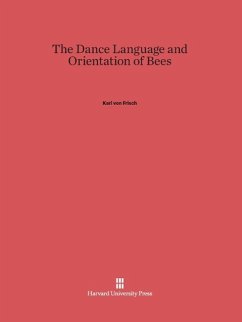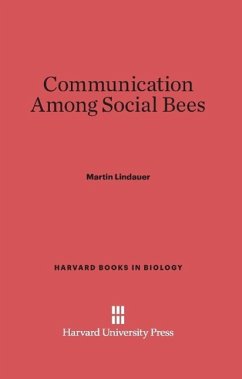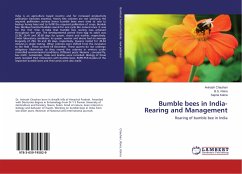
Bumble bees in India- Rearing and Management
Rearing of bumble bee in India
Versandkostenfrei!
Versandfertig in 6-10 Tagen
41,99 €
inkl. MwSt.

PAYBACK Punkte
21 °P sammeln!
India is an agriculture based country and for increased productivity pollination becomes essential. Honey bee colonies are not satisfying the required pollination services hence bumble bees were tried to rear to backup honey bees and to fulfill the required pollination of crops. Bumble bee, Bombus haemorrhoidalis reared for one cycle like natural ones. It was for the first time in India that bumble bee rearing was achieved throughout the year. The developmental period from egg to adult was 32.96, 26.41 and 30.60 days for queen, drone and worker, respectively. Under laboratory conditions, its q...
India is an agriculture based country and for increased productivity pollination becomes essential. Honey bee colonies are not satisfying the required pollination services hence bumble bees were tried to rear to backup honey bees and to fulfill the required pollination of crops. Bumble bee, Bombus haemorrhoidalis reared for one cycle like natural ones. It was for the first time in India that bumble bee rearing was achieved throughout the year. The developmental period from egg to adult was 32.96, 26.41 and 30.60 days for queen, drone and worker, respectively. Under laboratory conditions, its queen, worker and drone had an average longevity of 294, 54 and 39 days, respectively. Queens mated for 36.63 minutes in single mating. When colonies were shifted from the incubator to the field , these survived till December. These queens do not undergo obligatory hibernation as they reared the colonies in winters under controlled environmental conditions. Different pests: Nosema , conopid fly, bee moth, nematodes, mites and beetles were recorded. Biology of these pests revealed their interaction with bumble bees. RAPD-PCR studies of the respective bumble bees and their pests were also made.





